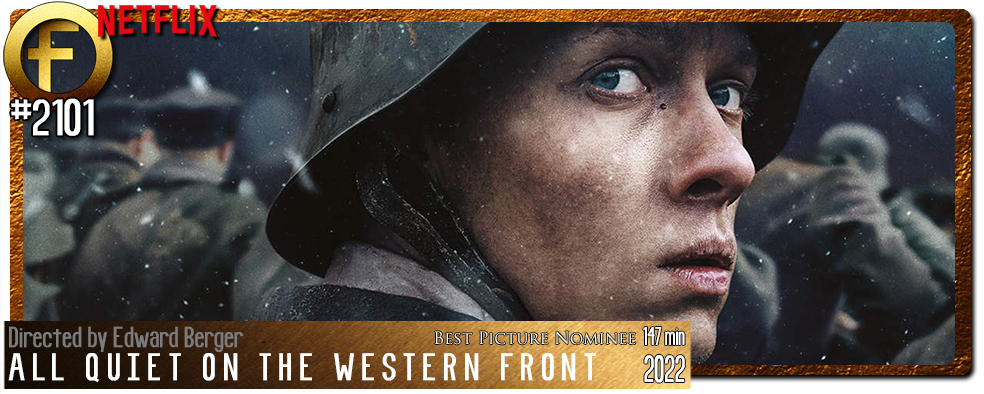Movie Review – All Quiet On The Western Front (2022)
Principal Cast : Felix Kammerer, Albrecht Schuch, Aaron Hilmer, Edin Hasanovic, Sebastien Hulk, Daniel Bruhl, Devid Striesow, Thibault de Montalembert, Adrien Grunewald, Moritz Klaus, Andreas Dohler, Luc Feit, Anton von Lucke, Michael Pitthan, Joe Weintraub.
Synopsis: A young German soldier’s terrifying experiences and distress on the western front during World War I.
********
The second feature film and third overall adaptation of Erich Maria Remarque’s 1928 literary masterpiece detailing the effects of battle on the young participants of the Great War, and the first in German, Edward Berger’s production is an epic modern masterpiece that can stand alongside the very best the genre has to offer. Not for the faint of heart, and most certainly not for the squeamish, All Quiet On The Western Front is a solemnified depiction of life on the European battlefield during the closing months of the First World War, in which the German forces were being increasingly routed by the Allies; routed so badly that the German Kaiser would abdicate, and with other members of the government forced to sign a declaration of Armistice to commence on November 11th, 1918. As with all anti-war films, the dehumanisation and pure insanity of war are once again writ large in this sublimely produced combat film, with the central characters having their preconceived notions of war challenged from the very moment they step into military fatigues.
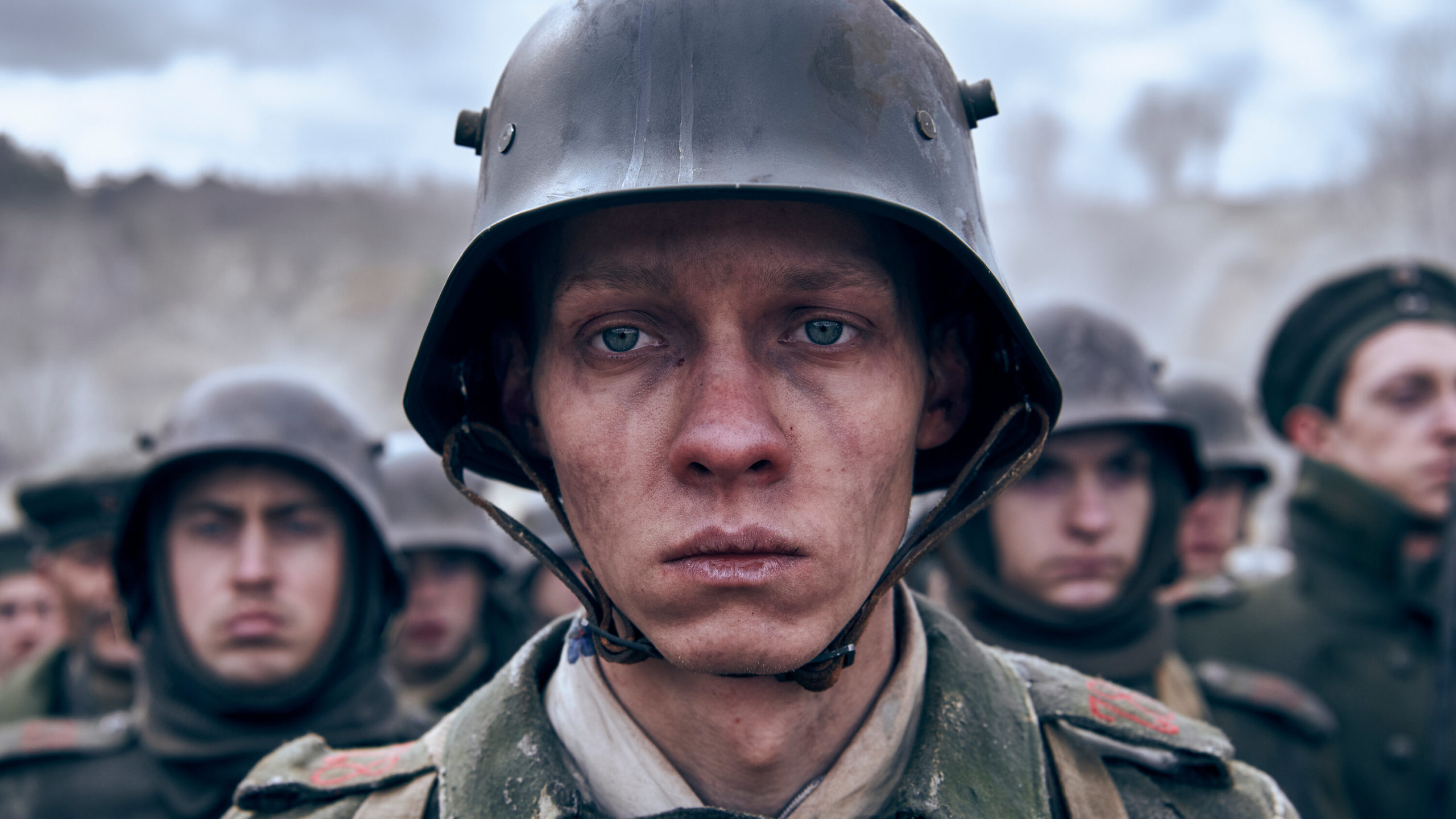
Spring, 1917, and idealistic young German friends Paul Baumer (Felix Kammerer), Albert Kropp (Aaron Hilmer), Ludwig Behm (Adrian Grunewald) and Franz Muller (Moritz Klaus) race to sign up for the Imperial German Army following an impassioned and feverish call to patriotism by their school headmaster. The Germans are bogged down in trench warfare on the battlefields of France, and continue to throw fruitless and wasteful sorties of charges across the corspe-strewn wasteland; into this muddy, blood-soaked carnage Baumer and his friends suddenly find themselves, with each having to come to terms with the abject horror and futility of war. Meanwhile, in Compiegne, German Finance Minister Matthias Erzberger (Daniel Bruhl) seeks to work out the terms of an Armistice with France, with French General Ferdinand Foch (Thibault de Montalembert) insisting on the complete and utter surrender of all German forces. As the clock ticks down to the cessation of hostilities, a rogue German General, Freidrichs (Devid Streisow) wants to ensure that even in defeat, the Kaiser can still claim a small victory, even if it costs many more lives.
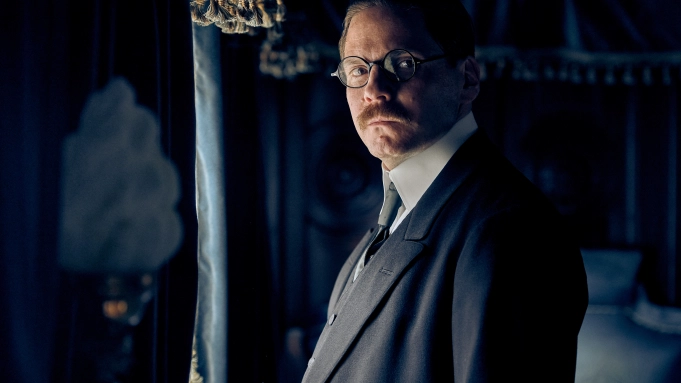
Lewis Milestone’s 1930 Best Picture winning adaptation of the Remarque’s original text remains the standard-bearer for anti-war sentiment on film, with few films since even closely approaching its moving, heart-breaking viewpoint that war, as is so often the case, is hell. Told exclusively from the side of the German army, All Quiet On The Western Front is a treatise against war in all its forms, from the scarred soldiers screaming into the mud on the battlefield, to the officers scouring maps in offices far distantly, to the quiet countryside away from the carnage as these young boys all take what little respite they can. We’ve seen this kind of torment and human depravity depicted superbly down through the years since, with multiple Oscar-contenders (Black Hawk Down, Dunkirk, 1917, Saving Private Ryan, Hacksaw Ridge et al) paving the way for this version to once more drag the viewer into the hell-on-earth of trench warfare. Whereas a lot of films of the genre lean heavily into propagandised American or British versions of most conflicts, All Quiet On The Western Front is perhaps the most astute of all wartime narratives in that it is among the first to give us an eyeball into life on the losing side. Although, in fairness, everyone loses in war. Little wonder the Nazi Party banned the book upon their ascension to power a decade later.
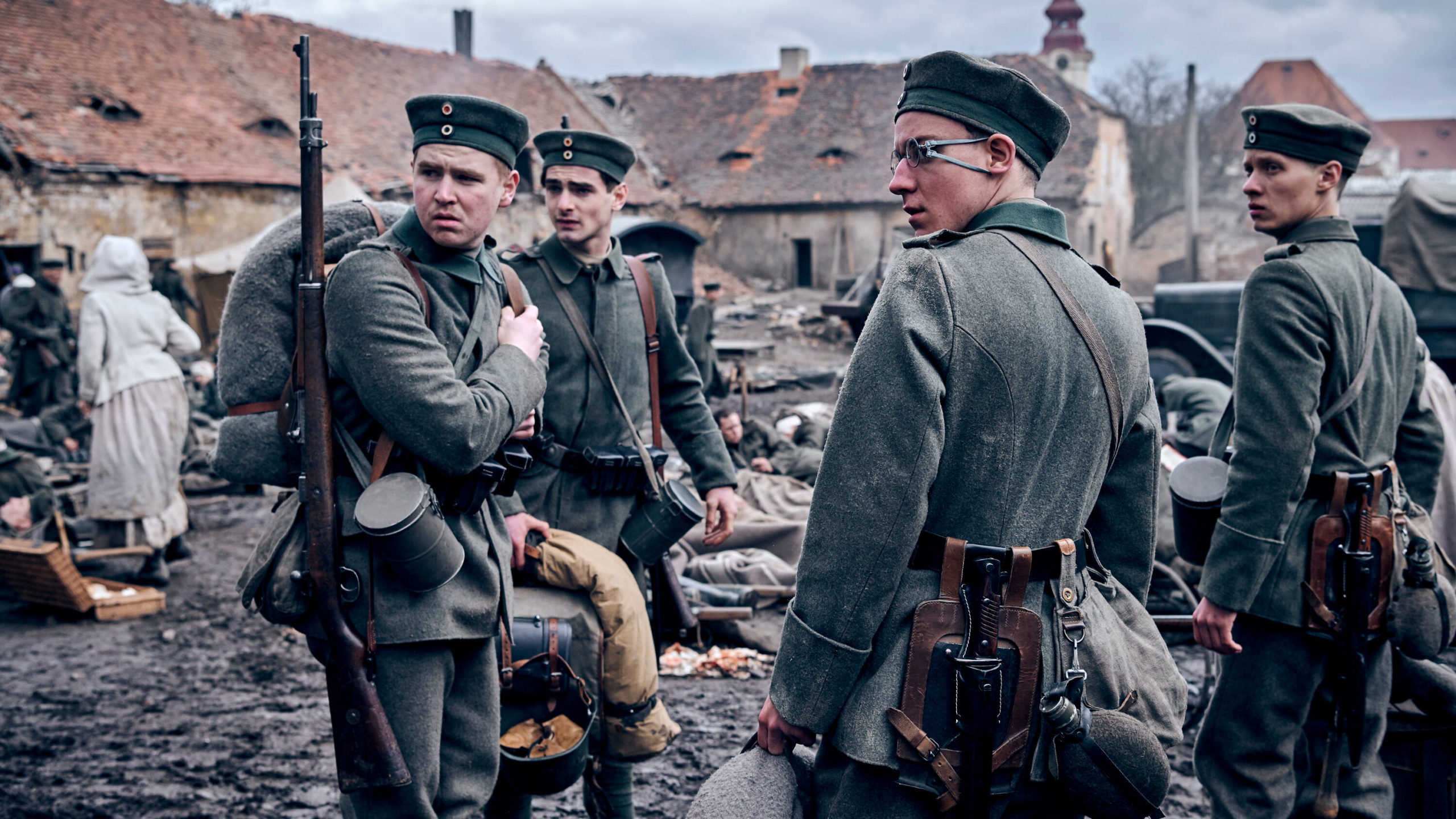
Co-written by director Berger and Ian Stokell with Lesley Paterson, this German-language version of All Quiet is both starkly contemplative, mournful, and assaultive; Baumer is our central character throughout, and we witness the absolute mayhem and carnage of the titular Western Front, which stretched from France’s northern border with Belgium down to Switzerland, through his vantage point as an initially enthusiastic, and then battle-hardened, solder of the German army. The friends he has, and those he makes along the way, are varied in terms of personal growth, and the script goes a long way to ensuring we find them memorable as much as possible, given how long (or not) they stay alive within the context of the film. Sure enough, the film’s catastrophic battle sequences are a tour de force of technical virtuosic filmmaking, shredding the screen with bodies and blood as the two armies scrounge and scrap over naught but a hundred meters of land riven by filthy, disease-ridden trenches scouring the French countryside. The loss we feel for each character we meet, and we lose a lot of them, is profoundly moving, some through sheer happenstance or accident, and some through misadventure. The film pulls no punches, and often relegates the viewer to the position of unwanted voyeur in some truly intimately brutal moments, which goes a long way to solidifying this as one of the truly great films – remake or not – to tackle the inhumanity of war.
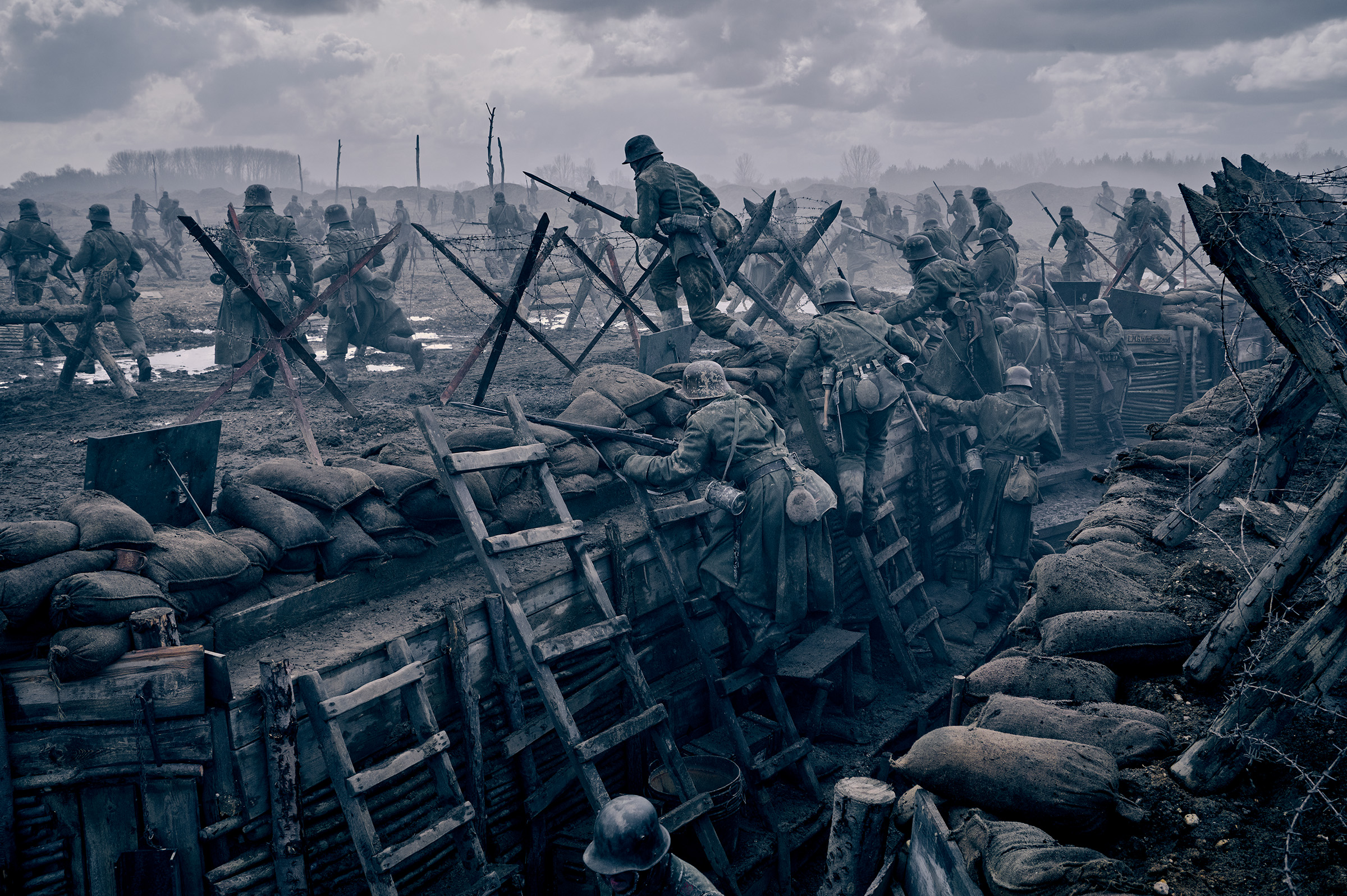
The film’s bleak aesthetic commences almost from the get, as we track the uniform of a slain German soldier back to the seamstresses of the army where it is repurposed and sent back into action with another wearer – this time, Baumer – in a montage sequence reminiscent of something Spielberg did in Schinder’s List. A brief respite for introductory brightness as Baumer, Kropp, Muller and Behm make their way to the Front, and the horror really begins. Extended periods of destruction, from grenades, bayonets and machine gun fire light up the screen in an orgy of flesh-pulping horror, which is not depicted in any kind of heroic, patriotic manner to justify embellishment. Nope, this is rancid, horrifying warfare of the most evil kind. Interlude sequences that see our central characters, and in particular the mournful and tragic Kat (Albrecht Schuch, in a performance I think should win him all the awards there are to win), escape the battles ever so briefly to enjoy some minor relaxation and general wartime adventure (one character gets a chance to go off into the woods and shag a beautiful young French girl, the perfumed neckerchief of whose becomes a central motif of normalcy throughout the remainder of the film) which serve to remind us that not all participants in war are horrible human beings, but rather they’re just human beings, flaws and all.
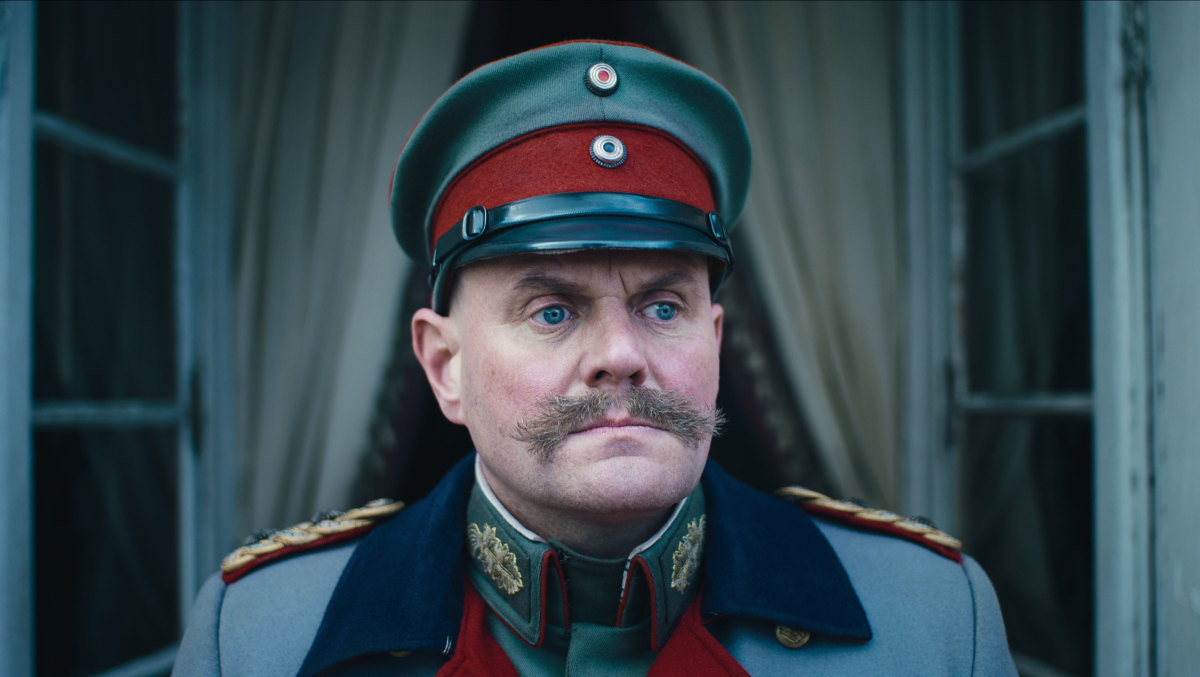
Despite the highly lauded combat sequences (and there are some truly gut-wrenching ones here, for sure), the film is just the most beautiful thing. When it has time to breathe quietly, there’s a vague feeling of Terence Malick about Berger’s direction, of barren fields, wooded glenns and snowbound wintery hillsides, beswept with Baumer’s shattered humanity trudging through it all, desperate to cling to hope and yet finding resolve that there quite literally is none. Even the film’s most jarring moment, when a dissident German general orders men into battle with quite literally 15 minutes remaining before Armistice, is haunting with its crisp stillness – major props to cinematographer James Friend and digital colourist Andrew Daniel for their work in giving this film a truly bleak, unforgiving look without completely leaning into the desaturated cliché so omnipresent elsewhere – and you’d be a tough nut to crack if your heart didn’t break just a little more knowing that lives were on the line even then. As with most modern war films, the horror of bodily injury is depicted with realism and visceral potency by an unforgiving editorial and visual effects line-up of busted limbs, shattered bodies and concussive injuries that made even me wince. As I mentioned above: this film is not for the squeamish. Even in this horror, however, All Quiet retains a hideous beauty that cannot be ignored.
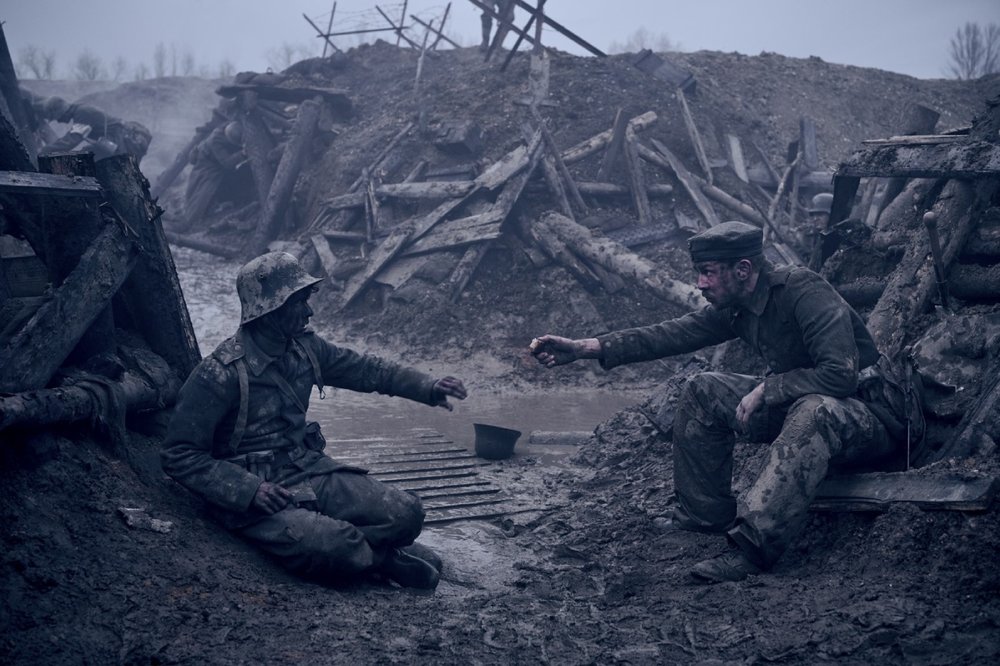
It might be easy to compare All Quiet On The Western Front not just to its cinematic forebears (the mid-90’s television version is as-yet unwatched by this reviewer) or even wider genre filmmaking in general. Edward Berger’s film is a stunning achievement not just in the heavily saturated war genre but in filmmaking generally – I would argue it’s one of the best films of the year and a contender for one of the truly great war films of all time. Comparisons are inevitable and if pressed, I’d suggest this version is easily the equal to the original 1930 Hollywood version. Bleak, desperately hopeless and filled with a sense of tidally stricken human sadness, All Quiet On The Western Front is destined to become a classic in its own right, and must see filmmaking for all who think war is a glorious adventure.

